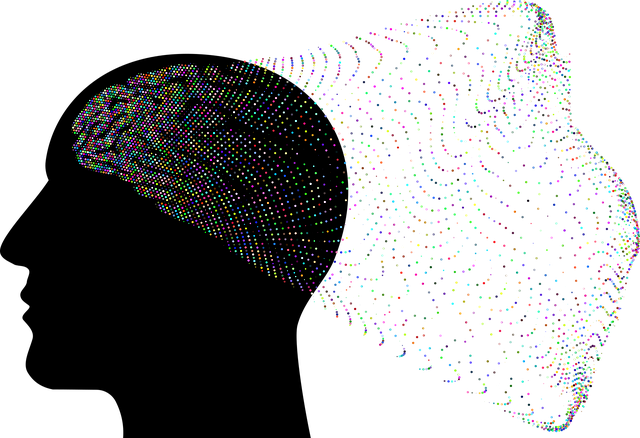In Arvada, data-driven approaches revolutionize Oppositional Defiance Disorder (ODD) therapy by employing structured questionnaires, clinical interviews, and observational scales for accurate symptom capture. Advanced data methods transform raw information into actionable insights through consistency checks, missing value handling, and aggregation. Normalized metrics enable comparability across diverse populations, guiding evidence-based decisions for tailored interventions. Longitudinal tracking of trends assesses program impact, ensuring efficient resource allocation. Therapists analyze patient records to understand behavioral patterns, triggers, and response histories, facilitating proactive ODD management and personalized mood management strategies. The ultimate goal is to empower patients with coping mechanisms for improved mental health outcomes and enhanced quality of life in Arvada's ODD therapy programs.
Mental health data analysis plays a pivotal role in understanding and addressing complex conditions like Oppositional Defiance Disorder (ODD). This article explores the intricate process of collecting, preparing, and interpreting data to gain valuable insights into ODD within Arvada’s community. By delving into these steps, we uncover trends, identify risk factors, and inform evidence-based therapies. Through effective data analysis, healthcare professionals can tailor treatments, ultimately enhancing outcomes for individuals struggling with ODD in Arvada and beyond. Discover how this approach revolutionizes mental health care.
- Understanding Mental Health Data: Collection and Preparation
- Analyzing Oppositional Defiance Disorder (ODD) in Arvada: Insights and Trends
- Interpreting Data for Effective Therapy and Treatment Strategies
Understanding Mental Health Data: Collection and Preparation

Understanding Mental Health Data involves a critical look at the collection and preparation processes. Accurate data collection is essential for any analysis, especially when dealing with sensitive topics like Oppositional Defiance Disorder (ODD) therapy in Arvada. This begins with establishing reliable sources such as structured questionnaires, clinical interviews, or observational scales. These tools help capture relevant symptoms, behaviors, and patient perceptions. However, data preparation goes beyond cleaning and organizing raw information. It includes transforming data into actionable insights by ensuring consistency, handling missing values appropriately, and aggregating data to support meaningful interpretation.
Effective preparation also involves normalizing metrics for comparability across different populations and contexts. For instance, when analyzing ODD therapy outcomes, comparing scores on a standardized mental wellness journaling exercise or mindfulness meditation assessment can provide valuable context. This comprehensive approach ensures that the data accurately reflects the complex nature of mental health conditions and guides evidence-based decisions in Arvada’s therapy programs development.
Analyzing Oppositional Defiance Disorder (ODD) in Arvada: Insights and Trends

In Arvada, analyzing Oppositional Defiance Disorder (ODD) through advanced data methods offers valuable insights into this complex mental health issue among youth. By scrutinizing treatment outcomes and behavioral patterns, therapists can identify trends and tailor interventions effectively. For instance, a deep dive into ODD cases may reveal that certain therapeutic approaches, such as cognitive-behavioral therapy enhanced with mindfulness meditation techniques, lead to better results in managing aggressive behaviors and promoting positive thinking. This localized study on Arvada’s youth could contribute to the global understanding of ODD, guiding practitioners in implementing more targeted strategies for prevention and depression management.
Moreover, tracking these trends over time enables professionals to assess the impact of various programs and policies related to mental health support in Arvada. For example, an analysis might uncover correlations between increased access to therapy services and a decline in ODD symptoms. This data-driven approach not only informs treatment strategies but also advocates for evidence-based practices, ensuring that resources are allocated efficiently to address the unique needs of youth with ODD in Arvada.
Interpreting Data for Effective Therapy and Treatment Strategies

Effective therapy and treatment strategies for conditions like Oppositional Defiance Disorder (ODD) in Arvada heavily rely on accurate data interpretation. By analyzing patient records, therapists can gain valuable insights into behavioral patterns, triggers, and response histories. This process enables them to tailor interventions that address specific needs. For instance, identifying frequent crises and their underlying causes through crisis intervention guidance helps in developing proactive strategies to manage ODD symptoms.
Data-driven approaches also facilitate mood management by uncovering emotional responses to various situations. This information guides therapists in prescribing confidence-boosting activities or techniques suited to the individual’s unique trajectory. Ultimately, the goal is to empower patients with coping mechanisms that lead to improved mental health outcomes and a higher quality of life.
Mental health data analysis is a powerful tool that can significantly enhance our understanding of conditions like Oppositional Defiance Disorder (ODD) in Arvada. By carefully collecting, preparing, and interpreting these data, we gain valuable insights into trends, patterns, and potential triggers, which are crucial for developing effective therapy and treatment strategies. This approach not only personalizes care but also ensures that resources are allocated efficiently to support those struggling with ODD in Arvada.














